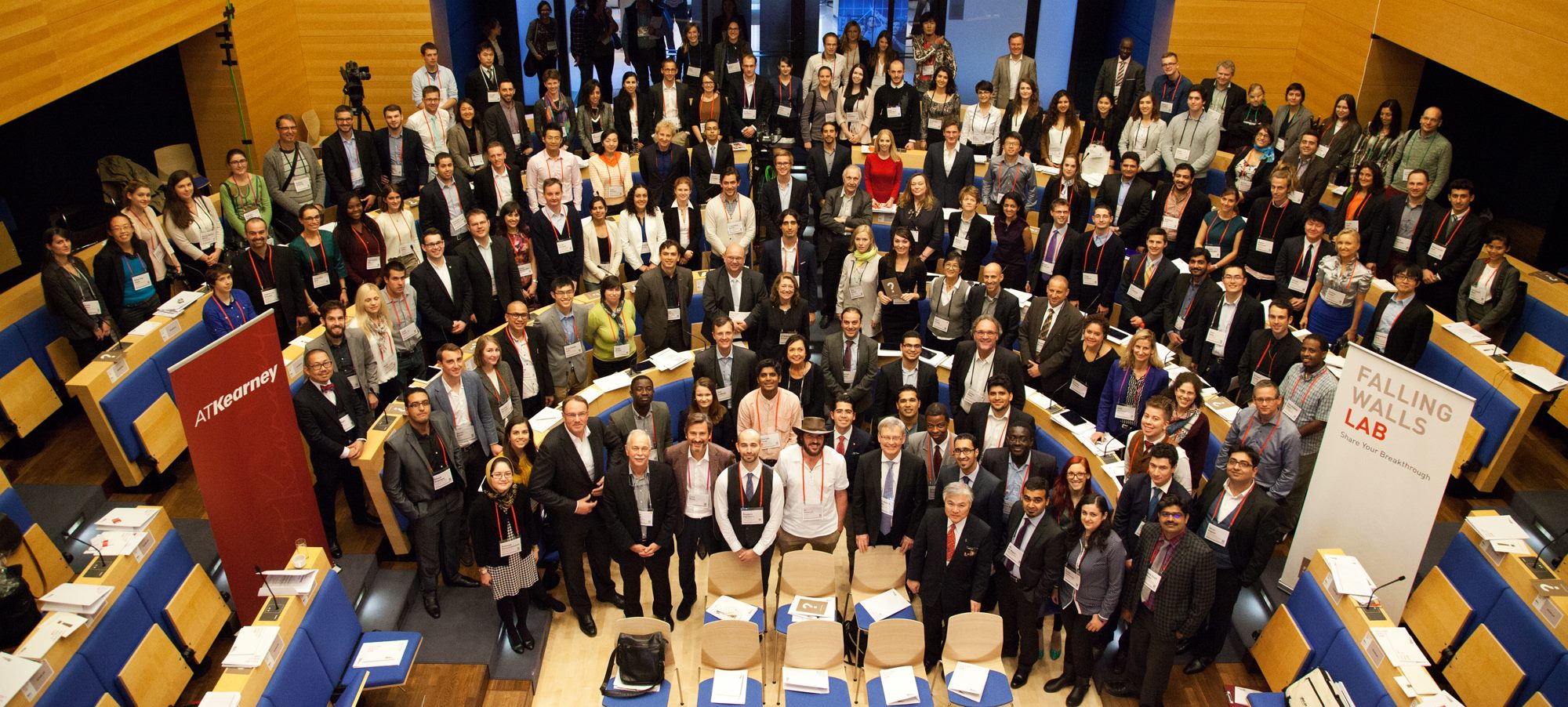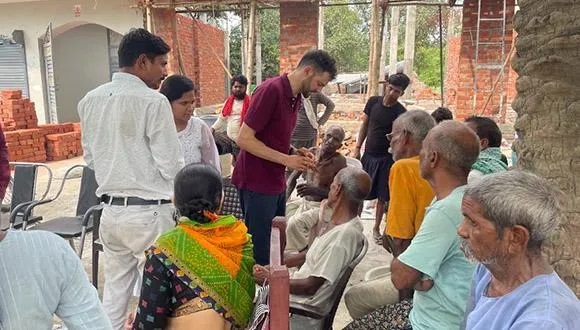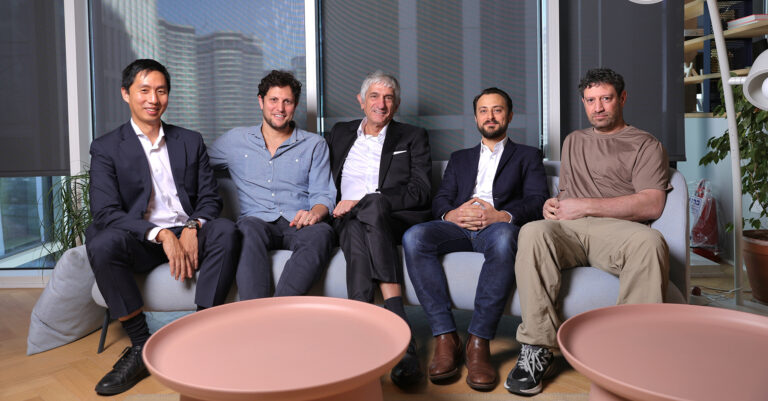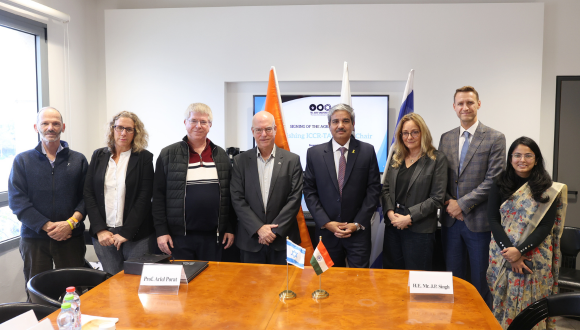Production d’énergie à partir d’hydrogène : une israélienne (Technion) parmi les vainqueurs de "Falling Walls"

[:fr]Falling walls, « faire tomber les murs », est un concours international basé à Berlin. Si son nom fait référence à la chute du Mur survenue en novembre 1989, c’est surtout un clin d’œil à ces recherches très innovantes qui font tomber les murs techniques ou idéologiques de nos connaissances. Trente cinq pays étaient représentés. Israël s’est classé troisième, grâce à Shani Elitzur, doctorante à la faculté de génie aérospatiale du Technion.
Shani Elitzur faisait partie des 100 finalistes en compétition. Le projet qui a retenu l’attention du jury est une technologie très novatrice de production d’énergie à partir d’hydrogène. Cette invention pourrait diminuer de façon massive la dépendance de nos pays aux hydrocarbures. « L’idée de fabriquer de l’énergie à partir de l’hydrogène n’a en soi rien de révolutionnaire » explique Elitzur. Mais ce qui est une véritable innovation c’est de fabriquer l’hydrogène in situ. L’hydrogène est en effet un gaz très léger, de densité très faible. Il faut, pour le transporter le comprimer fortement et le maintenir à des températures très basses. Qui plus est ces réservoirs sous pression sont potentiellement à risque. En revanche si on se révèle capable de produire l’hydrogène au fur et à mesure des besoins, la question de son stockage et de son transport ne se pose plus. Et c’est bien là le concept développé par Shani Elitzur.

Sa méthode est basée sur l’interaction de l’eau (dont chaque molécule comporte deux atomes d’hydrogène), et de l’aluminium, en présence d’une substance qui active la réaction. L’énergie produite par sa technologie est plus élevée que celle que l’on obtient par les techniques de stockage existantes, y compris les piles au lithium. Le travail d’Elitzur a été réalisé dans le cadre de sa thèse de doctorat qu’elle conduit sous la direction du Pr Alon Gany et du Dr Valery Rosenband. Avant d’être distinguée par ce prix, Shani Elitzur avait également reçu une subvention de 300 000 Shkalim du ministère de la Science, pour le développement de carburants alternatifs dans le transport. Selon le ministère de la Science, le programme de recherche de Shani Elitzur a démontré sa faisabilité et pourrait conduire à un développement avec un potentiel commercial. « Le ministère continuera à faire beaucoup pour l’avancement des femmes dans les sciences. La victoire de Elitzur n’est pas un hasard – elle fait partie d’un nombre croissant de femmes en Israël dont les réalisations dans la science, la technologie et l’innovation sont une source de fierté » a ajouté Ofir Akunis, ministre de la Science.
Cendrine Barruyer pour Israël Science Info[:en]Shani Elitzur, a doctoral student at the Technion Faculty of Aerospace Engineering, won third place in the finals of the international Falling Walls Lab competition, which took place this week in Berlin. Elitzur, one of the competition’s 100 finalists, presented innovative technology for the production of hydrogen energy that could reduce dependence on oil through the use of hydrogen-based propulsion. First place went to Sabrina Badir of the ETH Institute for Mechanical Systems in Zurich, for technology for the prevention of preterm birth, and second place went to Lian Willetts of the University of Alberta in Canada, for predicting prostate cancer metastasis on the basis of a single drop of blood.
Shani Elitzur recently received a grant from the Ministry of Science for developments in the field of alternative fuels for transportation – a NIS 300,000 grant that will enable her to continue her research. According to the Ministry of Science, Elitzur’s research program has demonstrated applied feasibility, which could soon lead to a development with commercial potential. Science Minister Ofir Akunis said in response to Elitzur’s win that “The ministry will continue to do much for the advancement of women in science and to support them on their way to a breakthrough. Elitzur’s win is not accidental – she is part of a growing number of women in Israel whose achievements in science, technology and innovation are a source of pride.”

Shani began her studies at the Technion as a member of the IDF Academic Reserve, and went on to earn a master’s degree and a doctorate. In her doctorate, under the guidance of Prof. Alon Gany and Dr. Valery Rosenband, she is developing an innovative technology for producing energy from hydrogen. According to Elitzur, “The idea of producing energy from hydrogen is not new, but since the density of hydrogen is low, its storage requires very intense compression or cooling to very low temperatures. These limitations, along with the safety aspects associated with the use of hydrogen, are the barriers currently preventing the extensive civil use of hydrogen energy.”
In light of this fact, the Technion Faculty of Aerospace Engineering has developed a ‘portable plant’ for the production of hydrogen onsite – i.e. inside the car – without the need for storing it. The method is based on the interaction between aluminum and water in the presence of a very low dosage of an activating substance (2.5%). The electrical energy generated by the aluminum-water technology is higher by an order of magnitude than the electrical energy obtainable with the existing storage technologies, including lithium batteries.”
Falling Walls Lab is an international competition with the participation of 35 countries, and has been held in Berlin since 2011. The competition is intended for students for all degrees and for young (up to age 35) industrialists, entrepreneurs and faculty members. It is an interdisciplinary format which gives contestants the opportunity to present ideas, developments and inventions within a timeframe of just three minutes. The name of the competition is a tribute to the fall of the Berlin Wall, and the basic idea is that contestants will present breakthroughs that constitute breaking down ideological, technological and other “walls”. Elitzur took part in the international finals this week after having won first place in the Falling Walls Lab Israel competition two months ago. Falling Walls Lab Israel was held at the Technion as a joint initiative of the Technion Computer Engineering Center, the Bronica Entrepreneurship Center at the Technion, and Hebrew University of Jerusalem.[:]







